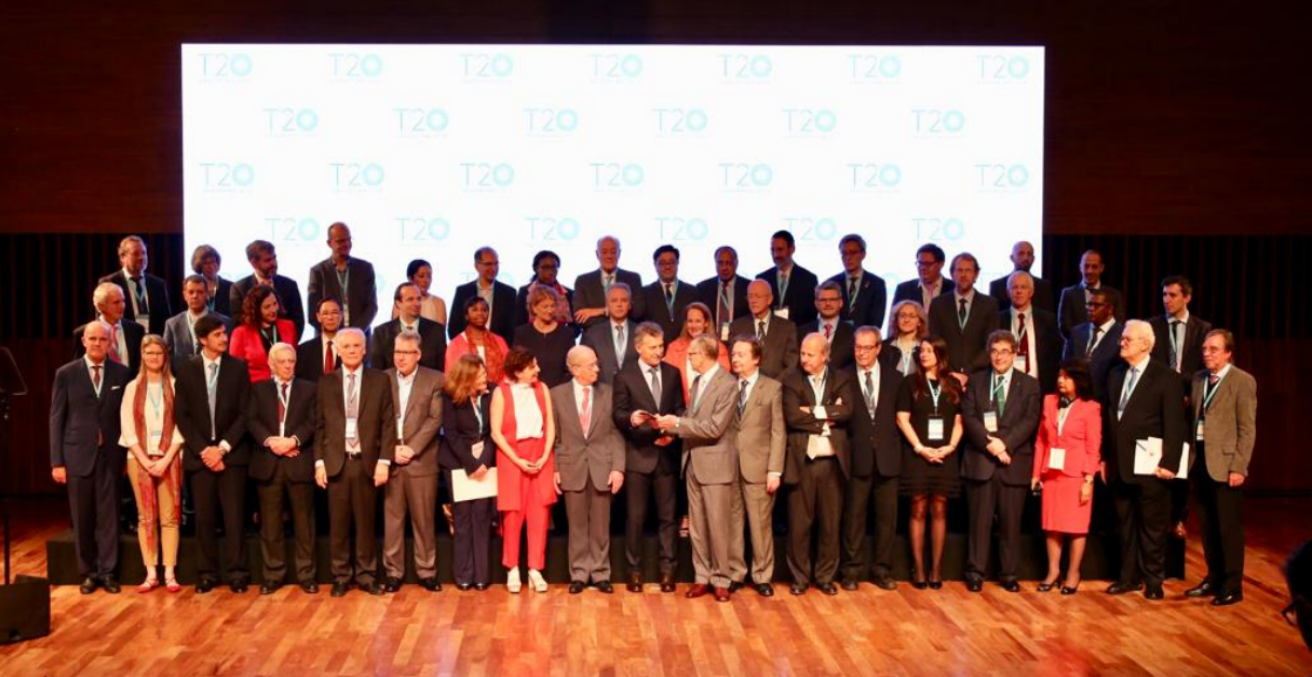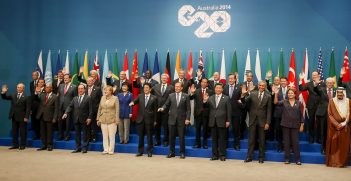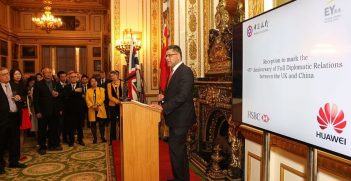G20: Cooperation to Overcome the Challenges of Multilateralism

Global well-being is an unattainable goal if each country is not prepared to make concessions and strive to promote international cooperation.
The international outlook is complex. Dissatisfaction with globalisation is no longer limited to a handful of developing countries but has now spread into more advanced nations. Years of successful international cooperation have given way to disagreements between countries around trade, tax issues, technology, and the environment.
The G20 was successful in handling the global financial crisis of 2008-2009 and containing its aftershocks. The world was facing an urgent global threat and the leaders of the G20 defined, coordinated, and implemented the monetary, fiscal, and regulatory policies needed to tackle this crisis. Since then, the G20 has played a fundamental role in promoting international financial stability.
Unfortunately, despite the importance of today’s global challenges, the world does not seem to perceive them with the same sense of urgency. Climate change, food security, the distribution of the costs and benefits of trade and technology, inequality (including gender inequality) and needed investment in infrastructure for development are global challenges that create negative externalities. However, their effects are felt as strongly in the short term as those of a financial crisis. These are collective action problems in which countries have little incentive to implement individual solutions because these are costly and imply conflicts of interest, and those who instigate solutions will not be the only ones to reap the benefits.
However, global well-being is an unattainable goal if each country is not prepared to make concessions and strive to promote international cooperation.
Global problems demand cooperative responses and institutions that can generate stable commitments. In the current context, which entails multiple challenges but lacks the sense of urgency that would bring stakeholders together and facilitate cooperation, multilateral institutions are having a hard time reaching global solutions. The G20 is the ideal forum for starting dialogues to seek basic consensus around a form of multilateralism that would allow countries to take on a shared agenda with a focus on trade, climate change, inequality and echnological change.
Redesigning the Multilateral Trading System
The G20 should start a dialogue to redesign the World Trade Organization (WTO) and prevent increases in recent trade frictions. The main aim is helping societies adapt to the productive, technological and social challenges of the 21st century. A creative agreement between G20 leaders prioritising the principle of cooperation would help kickstart the much-needed reform of the WTO and strengthen the international trading system.
This dialogue could take place under the auspices of the G20’s Trade and Investment Working Group and would focus on three areas. First, facilitating the transition to a new trade regime, one befitting a multipolar world. Second, preserving the essence of the multilateral system—such as the principle of nondiscrimination—and adapting rules and institutions to the new realities of global trade, which is characterised by the growing digitalisation and internationalisation of productive activities and the consolidation of global value chains. The system needs to respond to global needs such as food security by strengthening trade in agricultural goods and developing healthy, sustainable global food systems. Third, finding a way to reconcile the flexibility and predictability that the multilateral trading system requires.
Fulfilling the Paris Agreement
The G20 also needs to play a central part in the fight against climate change. If current trends continue, global warming will exceed the 2°C limit to temperature increase by 2050. Only immediate cooperative action on the part of the international community, led by the G20 countries, can reverse this situation. Measures to mitigate and adapt to climate change need to be clear and categorical and countries’ commitment to implementing them must be lasting and equitable. The Paris Agreement is the most appropriate framework for achieving this objective.
Addressing climate change requires significant investment in infrastructure for development. Emerging economies need to create or expand their network of public services and developing countries need to modernise theirs. The G20 must promote agreements that ensure that the new infrastructure will contribute to mitigating climate change and provide incentives for developing financial instruments and regulations to mobilise the resources needed to implement these projects. The G20’s influence on multilateral financial institutions, development banks and the private sector—all key players in this process—is essential to achieving these goals.
The G20 is the right forum for taking on these pressing global challenges because it is representative, diverse, and flexible by nature. This group of countries is home to 66 per cent of the world’s population, accounts for 85 per cent of global production, and takes part in 75 per cent of international trade. Its representativeness and value also derive from the diversity of its members. The G20 includes countries from every continent, high-, middle-, and low-income countries, and people with all manner of religions, histories, experiences, and cultures. This diversity is one of its key assets and it needs to play a more pivotal role.
The representativeness, diversity and flexibility of the G20 make it the best international forum in which to encourage multilateral cooperation and coordination and to promote actions for a more prosperous, inclusive, sustainable world that respects different countries’ idiosyncrasies and unique qualities. The Think 20 (T20) works to help the G20 find solutions to global challenges by putting forward concrete proposals that eschew sector-specific interests and are rooted in evidence-based research.
The Argentine Council for International Relations (CARI) and the Center for the Implementation of Public Policies Promoting Equity
and Growth (CIPPEC) were mandated by the Argentine Government to organize and co-chair the T20 process during Argentina’s
G20 presidency.
This is an extract of The T20 Communiqué published on T20 Argentina 2018’s website. It is republished with permission.
The AIIA attended the T20 Summit in Buenos Aires.





